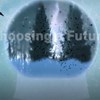generalizes
Paul's Reconfiguration of Decision-problems in the Light of Transformative Experiences
Rivista Internazionale di Filosfia e Psicologia Abstract This paper focuses on cases of epistemically transformative experiences, as Paul calls them, cases where we have radically different experiences t
Additively-separable and rank-discounted variable-population social welfare functions: A characterization
Economic Letters, vol. 203 Abstract Economic policy evaluations require social welfare functions for variable-size populations. Two important candidates are critical-level generalized utilitarianism (CL
Julia Nefsky: Expected Utility, the Pond Analogy and Imperfect Duties
Plats: Institute for Futures Studies, Holländargatan 13, StockholmResearch seminar with Julia Nefsky, Associate Professor of Philosophy at University of Toronto. Register hereAbstractThis talk brings to
‘Humans think outside the pixels’ – Radiologists’ perceptions of using artificial intelligence for breast cancer detection in mammography screening in a clinical setting
Health Informatics Journal Abstract This study aimed to explore radiologists’ views on using an artificial intelligence (AI) tool named ScreenTrustCAD with Philips equipment) as a diagnostic decision su
Dunbar’s number deconstructed
Biology Letters 17: 20210158 Abstract A widespread and popular belief posits that humans possess a cognitive capacity that is limited to keeping track of and maintaining stable relationships with approxi
Value Superiority
in: The Oxford Handbook of Value Theory Eds. Iwao Hirose and Jonas Olson, Oxford University Press.DOI:10.1093/oxfordhb/9780199959303.013.0013 Suppose that A and B are two kinds of goods such that more

Future generations
Climate change is the biggest challenge of our time, and in this theme there is a focus on future generations and their living conditions. We aim to examine among other things climate ethics, sustainable development, green growth, obstacles to climate action and social dilemmas.
Research seminar with Oskar Nordström Skans: The Heterogeneous Earnings Impact of Job Loss Across Workers, Establishments, and Markets
Venue: Institutet för framtidsstudier, Holländargatan 13, 4th floor, Stockholm, and online Research seminar with Oskar Nordström Skans, Professor of Economics, Uppsala University. REGISTERAbstractUsing g
Discrimination and Future Generations
In: Mosquera, J. & O. Torpman (ed.),Studies on Climate Ethics and Future Generations vol. 6. Working Paper Series 2024:10–17 Abstract In this paper, I analyse whether the present generation’s choices. This has been tentatively suggested in both legal theory and philosophy; I review such suggestions briefly in section 1. However, a more rigorous analysis – outlining the concept, relevant grounds, and wrong-making features of discrimination, and applying these to future generations – is still lacking. To address this lacuna, I propose a theory of discrimination and analyse why it might seem to apply – yet ultimately fails to apply – to the differential treatment of future generations. More specifically, I propose a definition of discrimination (section 2.1) and an account of the moral wrongness of discrimination (section 2.2). I moreover explore the connection between discrimination and theories of social (in)justice (section 2.3). I then apply this theory to the problem of differential treatment of future generations. While discrimination may occur between collectives, such as generations (section 3.1), my analysis shows that the specific temporal status of future generations is not comparable to other grounds of discrimination, such as gender or race (section 3.2). Moreover, due the non-identity problem and the problem of lack of a “community of social meaning” between generations, future generations cannot be claimed to be subjected to worse treatment by the present generation (section 3.3). Hence, their differential treatment due to the present generation’s choices does not amount to discrimination. Section 4 concludes and outlines some upshots of my analysis.

Climate Change and Future Generations
What we do - or fail to do - about climate change now will impact the lives of billions and billions of people in the future. What is the right thing to do? This animated short film highlights the cho








